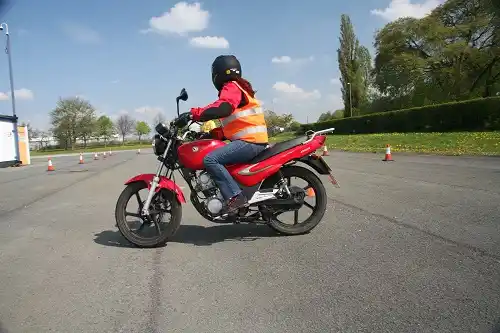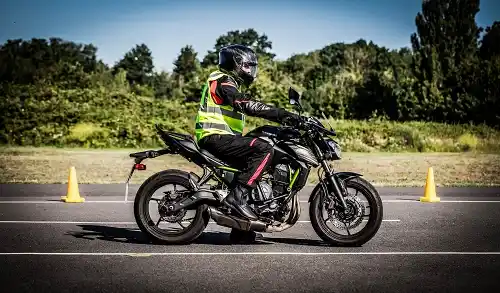Book a motorcycle CBT test in Connahs Quay, Flintshire with any of the companies listed here
Click on any of the motorcycle training schools below to view more information and check availability.
Probike Motorcycle Training Ltd Queensferry
Deeside Leisure Centre, Queensferry, Flintshire, CH5 1SA
Approx. distance: 1.7 miles
Phoenix Motorcycle Training Chester
c/o Brook Mollington Hotel, 1 Parkgate Road, Mollington, Chester, Cheshire West and Chester, CH1 6NN
Approx. distance: 5.9 miles
Dragon Motorcycle Training Ellesmere Port
The Groves, Ellesmere Port, Cheshire, CH66 2NZ
Approx. distance: 6.7 miles
Arrow School of Motoring Chester
Bill Smith Motors Ltd, 30 - 36 Tarvin Road, Chester, Cheshire, CH3 5DH
Approx. distance: 8.1 miles
The Ride Academy Chester
Smiths Honda, Whitchurch Road, Christleton, Chester, Cheshire West and Chester, CH3 6AE
Approx. distance: 9.4 miles
Hotwheelz Motorcycle Training Birkenhead
Lincoln Street, Birkenhead, Merseyside, CH41 8HL
Approx. distance: 12.7 miles
Easy Rider Motorcycle Training Liverpool
Chadwick Court, Liverpool, Merseyside, L3 7EY
Approx. distance: 13.9 miles
Wallasey Motorcycles Merseyside
100 Rake Lane, Merseyside, CH45 5DE
Approx. distance: 14.3 miles
Cheshire Bike Training Widnes
Shell Green House, Gorsey Lane, Widnes, Borough of Halton, WA8 0YZ
Approx. distance: 17.9 miles
Flintshire Bike School Rhyl
Rhyl Football Club, Rhyl, Denbighshire, LL18 4BY
Approx. distance: 18.6 miles

Find a motorcycle CBT test in Connahs Quay, Flintshire
Are you trying to book your CBT training in Connahs Quay or close by in Shotton, Queensferry and Ewole? Here at BookCBTNow we are one of the most trusted sources of online booking for motorcycle training companies. We can help you find your local training company and help you get your compulsory basic training started. Completing your 'Compulsory Basic Training' CBT test will allow you to ride any scooter, moped, electric motorbike, 50cc moped or 125cc motorbike of your choice. All you'll need to do is get a provisional UK license, suitable clothing and then book your CBT.
Will there by other learners with me?
On the day of your CBT test in Connahs Quay there may be others training with you, with a maximum of four per classroom, instructor aside. When you subsequently take to the road, there are permitted to be two learners per instructor. This is in order to give a slightly more realistic scenario, as well as giving you someone to talk to, which can help with nerves.

BookCBTNow - A Trusted Company
In the twenty first century, it is imperative for a business to not simply be professional in the service it provides; it must also have a pristine customer care system in place. Here at Book CBT Now, for anyone that is looking to book a CBT test in Connahs Quay, or any location, we are happy to receive any inquiries, as we have been doing so for over 20 years.
How do I complete my CBT in Connahs Quay, Flintshire?
Your CBT test in Connahs Quay is training that you must complete before you are able to ride independently. If you are safe to ride on the road unaccompanied you will receive a CBT test certificate. Whether you pass or fail your CBT test will be determined by the instructor who will be training you on the day. If the trainer doesn't think you are ready to be riding alone you will be asked to come back for additional training until the instructor feels you are safe to ride on the road.